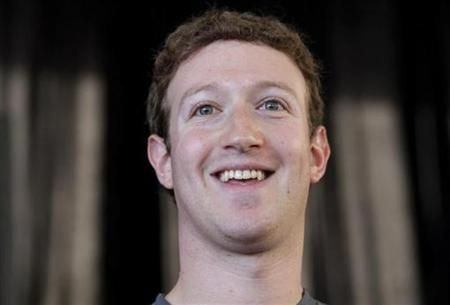Mark Zuckerberg is the second-youngest 'Time Person of The Year'

Mark Zuckerberg, the co-founder of social networking site Facebook, became the second-youngest person ever to be named the TIME magazine's 'Person of the Year.'
The 26-year old Zuckerberg, one of the most loved, criticized and admired men in the 21st century, is responsible for creating the website that changed the face of Internet, social interactions and perhaps the way one thinks of 'online privacy'.
TIME Managing Editor Richard Stengel said Zuckerberg stands out for accomplishing something that's never been done before: Connecting more than half a billion people and mapping the social relations among them.
Facebook is now the third-largest country on earth, and probably holds more information than any government about its citizens. Zuckerberg, a Harvard dropout, is its T-shirt-wearing head-of-state, Stengel added.
2010 has been a tough year for Zuckerberg, who faced an unforgiving public in April as Facebook changed its privacy policies without informing its users.
The company, which started as an exclusive Harvard website in 2004, is now one of the most lucrative firms on the Wall Street, estimated to be valued over $50 billion currently.
Zuckerberg and Facebook have been plagued with negative publicity for much of the year and are attempting to wipe smears off his reputation since April, where he was quoted as saying that he does not believe in privacy.
Facebook, which is almost synonymous with Zuckerberg, faced further problems as media reports stated that the website had some leaks in its site, which allowed other data mining people to access users' information.
The social networking site revised its privacy policy, gave users more control, removed applications that were selling users' data to marketing firms and more. The New Yorker ran one of the first and complete articles about Mark Zuckerberg in September, just before the movie 'The Social Network,' which was based on his life, was released.
The Time magazine article describes Zuckerberg as a warm presence, who has a quick smile and doesn't shy away from eye contact.
He thinks fast and talks fast, but wants you to keep up. He exudes not anger or social anxiety but a weird calm. When you talk to his co-workers, they're so adamant in their avowals of affection for him and their insistence that you not misconstrue his oddness that you get the impression it's not just because they want to keep their jobs. People really like him, Lev Grossman wrote in the article.
Despite all the criticism through the year, Zuckerberg seemed to be having the final laugh with Time Magazine's nomination, joining the ranks of Gandhi, Bill Clinton and Barack Obama. He also has the honor that was not previously awarded to other technology giants like Steve Jobs or Bill Gates.
The Tea Party, a loose affiliation of American citizens united by their dislike of big government, was named the runner-up to the award, Time Magazine said.
Julian Assange, the founder of Wikileaks, and a hot favorite for the award was in the third position, though he had the most votes.
Assange had an average rating of 92, with 382,024 votes totally, in contrast to Zuckerberg who had an average rating of 52 with 18353 votes, according to the magazine's readers' poll.
Hamid Karzai and the 33 Chilean miners who were trapped in a mine for more than two months took the fourth and fifth positions, respectively.
© Copyright IBTimes 2024. All rights reserved.



















